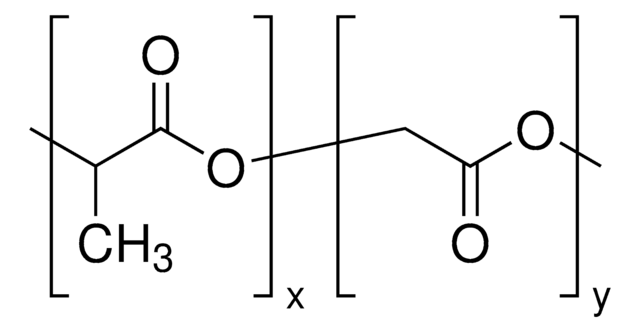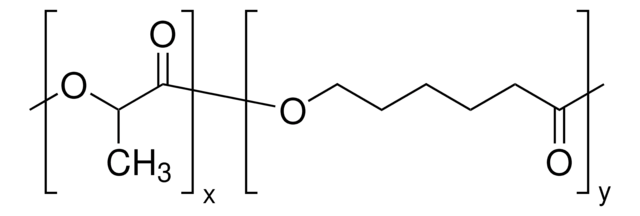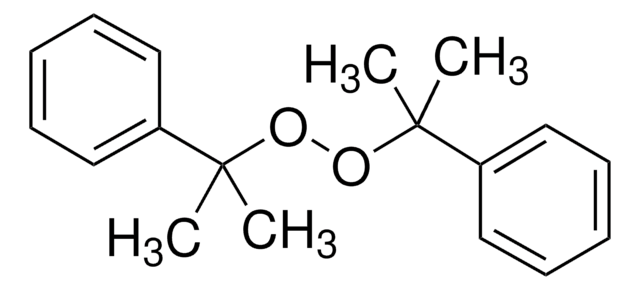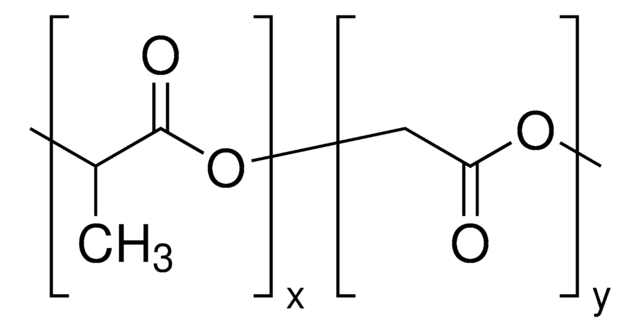568562
Poly(L-lactide-co-caprolactone-co-glycolide)
L-lactide 70 %, average Mn ~50,000 by GPC
Synonym(s):
ε-Caprolactone-glycolide-L -lactide copolymer, Poly-L -lactide-co-glycolide-co-ε-caprolactone
About This Item
Recommended Products
form
solid
feed ratio
lactide:caprolactone:glycolide 70:20:10
mol wt
average Mn ~50,000 by GPC
composition
L-lactide, 70%
transition temp
Tg ~28 °C
storage temp.
2-8°C
Related Categories
Application
Features and Benefits
Storage Class Code
11 - Combustible Solids
WGK
WGK 3
Flash Point(F)
Not applicable
Flash Point(C)
Not applicable
Personal Protective Equipment
Choose from one of the most recent versions:
Already Own This Product?
Find documentation for the products that you have recently purchased in the Document Library.
Customers Also Viewed
Articles
In the past two decades, tissue engineering and regenerative medicine have become important interdisciplinary fields that span biology, chemistry, engineering, and medicine.
Innovations in polymer technology have had a significant impact on the advancement of novel drug delivery systems.
Our team of scientists has experience in all areas of research including Life Science, Material Science, Chemical Synthesis, Chromatography, Analytical and many others.
Contact Technical Service








